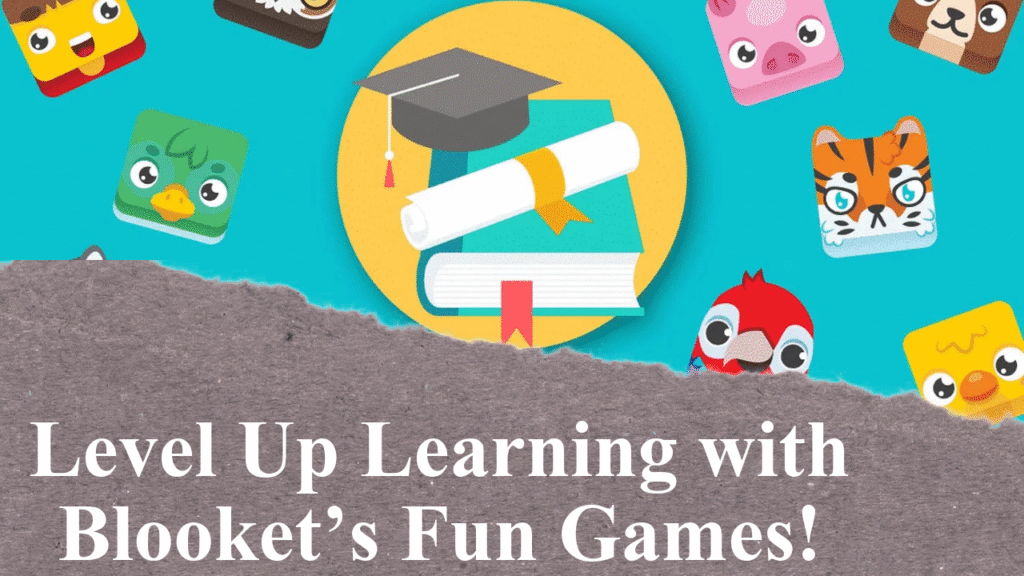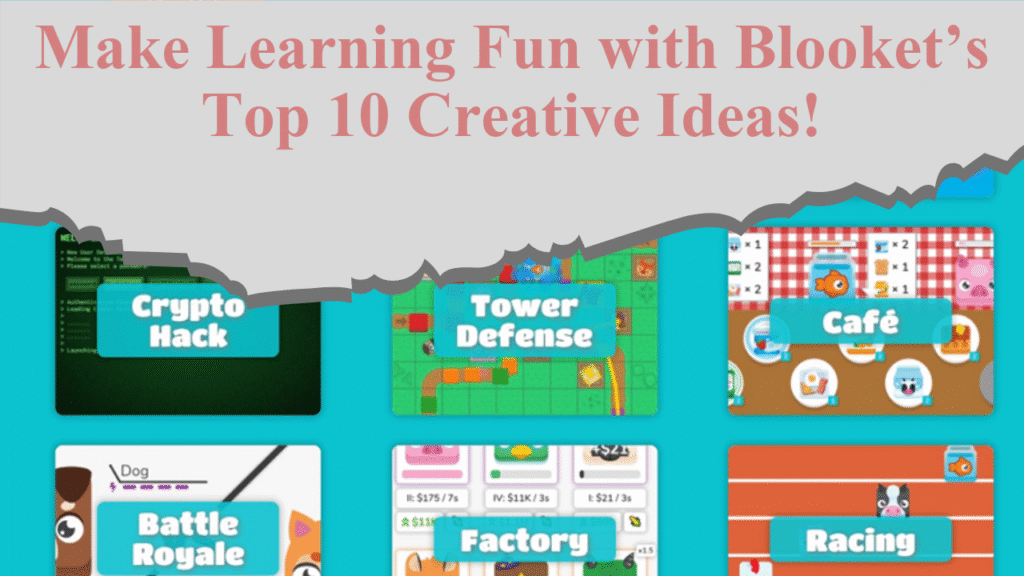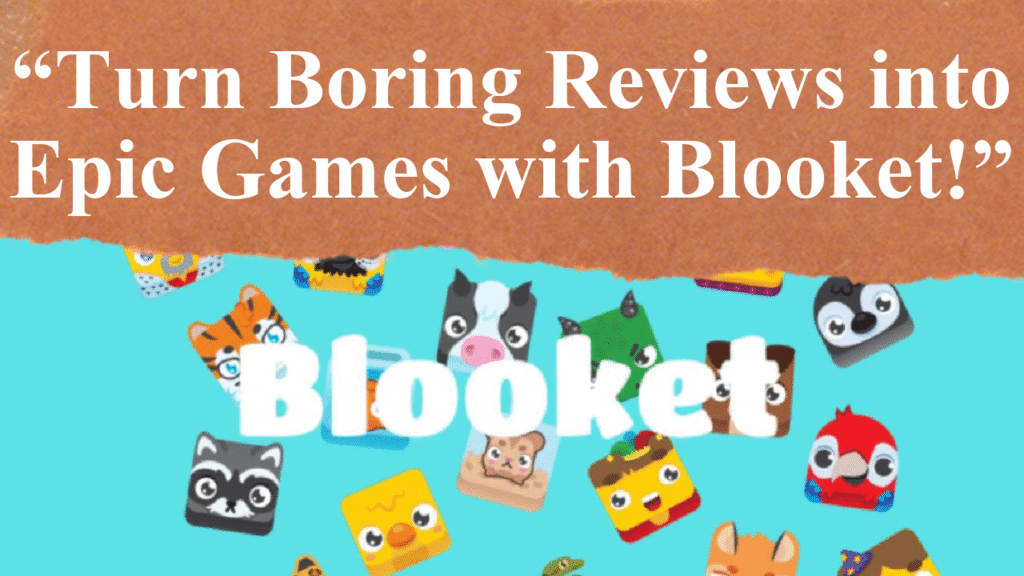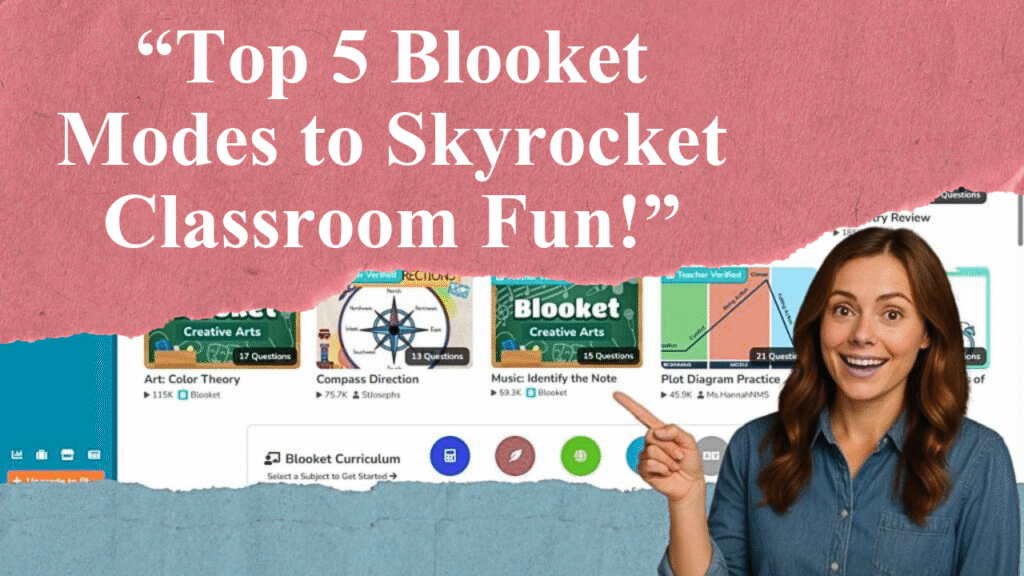“Blooket transforms formative assessments into engaging, game-based experiences that boost student participation and provide real-time feedback. Its customizable quizzes, diverse game modes, and analytics empower teachers to assess understanding effectively. Ideal for all subjects and grade levels, Blooket fosters collaboration, enhances retention, and makes learning fun, while its user-friendly interface ensures seamless classroom integration.”
Blooket: Revolutionizing Formative Assessments in the Classroom
Formative assessments are critical for gauging student understanding during the learning process, allowing teachers to adjust instruction in real time. Blooket, a gamified learning platform, has emerged as a powerful tool for this purpose, blending education with interactive gameplay to create an engaging and effective assessment experience. Launched as a free, web-based platform, Blooket enables educators to create or adapt quiz-style games that align with their curriculum, making it an ideal choice for formative assessments across various subjects and grade levels.
One of Blooket’s standout features is its ability to transform traditional multiple-choice quizzes into dynamic, game-based activities. Teachers can choose from over a dozen game modes, such as Tower Defense, Battle Royale, and Café Mode, each designed to cater to different learning styles and classroom dynamics. For instance, in Tower Defense, students answer questions to protect their towers, fostering strategic thinking, while Café Mode challenges them to manage a virtual café by answering questions correctly. These modes not only make assessments enjoyable but also encourage repeated practice, which research shows enhances knowledge retention through retrieval practice.
Blooket’s customization options allow teachers to tailor question sets to specific learning objectives. Educators can create their own quizzes or import sets from platforms like Quizlet, ensuring content relevance. The platform’s Discover database also offers thousands of pre-made question sets, covering subjects like math, science, language arts, and history, which saves preparation time. For example, a teacher can design a fractions-focused quiz with escalating difficulty to suit diverse ability levels or create a history set with timelines and cause-and-effect questions. This flexibility ensures Blooket aligns with any curriculum, making it a versatile tool for formative assessments.
Real-time feedback is another key advantage. Blooket provides instant analytics on student performance, allowing teachers to identify areas where students excel or struggle. After a game, educators can review individual and class-wide results to pinpoint knowledge gaps, enabling targeted interventions. For students, immediate feedback on correct and incorrect answers reinforces learning and corrects misconceptions promptly, a critical component of effective formative assessment. This data-driven approach supports instructional adjustments, ensuring lessons meet students’ needs.
Student engagement is a hallmark of Blooket’s design. Its gamified approach, complete with leaderboards, points, and unlockable avatars, taps into students’ competitive and collaborative instincts. Unlike traditional quizzes, Blooket’s vibrant themes and interactive elements make learning feel like a game night, keeping students motivated. Teachers report that students often beg to play “one more round,” indicating high engagement levels across grade levels, from elementary to high school. This enthusiasm translates to active participation, which is essential for accurate formative assessment data.
Blooket also supports diverse classroom settings, including in-person, hybrid, and remote learning environments. Teachers can host live games using a unique Game ID, allowing students to join via their devices, or assign games as homework for asynchronous completion. Features like password protection and the ability to allow late joiners ensure accessibility for all students, including those with special schedules. Additionally, Blooket’s team-based modes promote collaboration, fostering peer learning and communication skills, which are valuable beyond academics.
However, Blooket is not without limitations. Its reliance on multiple-choice questions can restrict deeper learning, as it may not fully support complex question types like open-ended responses. Some educators note that the competitive focus might overshadow learning for some students, particularly introverts, who may feel isolated during fast-paced games. To address this, teachers can adjust settings to de-emphasize speed or use team modes to encourage inclusivity. Privacy concerns also arise, as younger students may be prompted to create accounts to save progress, which teachers must monitor to comply with regulations like COPPA for students under 13.
Despite these challenges, Blooket’s benefits outweigh its drawbacks for formative assessments. Its ability to make learning fun, provide actionable data, and adapt to various educational contexts makes it a standout tool. For example, in a 2024 study, educators reported that Blooket’s game-based approach led to higher student engagement and better retention compared to traditional quiz platforms. The platform’s free version offers robust features, with premium options like Blooket Plus providing enhanced analytics and game modes for teachers seeking additional functionality.
Blooket’s versatility extends to specific subjects like language arts, where it can be used for vocabulary drills, grammar practice, or reading comprehension reviews. In math, teachers can create sets for word problems or geometry, incorporating visuals to aid understanding. For history, timeline-based questions or cause-and-effect scenarios deepen students’ grasp of concepts. This adaptability ensures Blooket is effective for formative assessments across disciplines, making it a go-to tool for educators aiming to enhance student learning dynamically.
Disclaimer: This article is based on recent reports, educational blogs, and teacher reviews from sources like Common Sense Education, TCEA TechNotes, and Eduporium. Information reflects trends and insights as of July 2025. Always verify platform features and privacy policies before use in educational settings.
[qwam_quiz_box]




